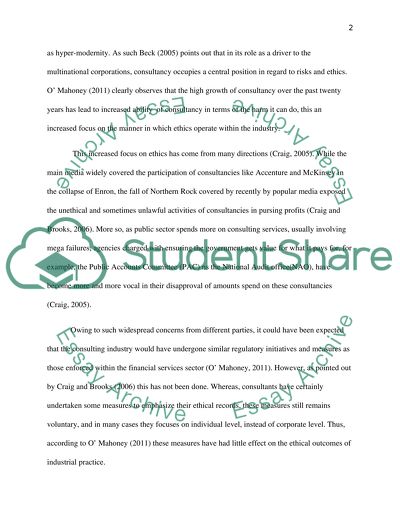Cite this document
(“Management Consultancy : To what extent is it realistic to expect Essay”, n.d.)
Retrieved from https://studentshare.org/macro-microeconomics/1426283-management-consultancy-to-what-extent-is-it
Retrieved from https://studentshare.org/macro-microeconomics/1426283-management-consultancy-to-what-extent-is-it
(Management Consultancy : To What Extent Is It Realistic to Expect Essay)
https://studentshare.org/macro-microeconomics/1426283-management-consultancy-to-what-extent-is-it.
https://studentshare.org/macro-microeconomics/1426283-management-consultancy-to-what-extent-is-it.
“Management Consultancy : To What Extent Is It Realistic to Expect Essay”, n.d. https://studentshare.org/macro-microeconomics/1426283-management-consultancy-to-what-extent-is-it.


